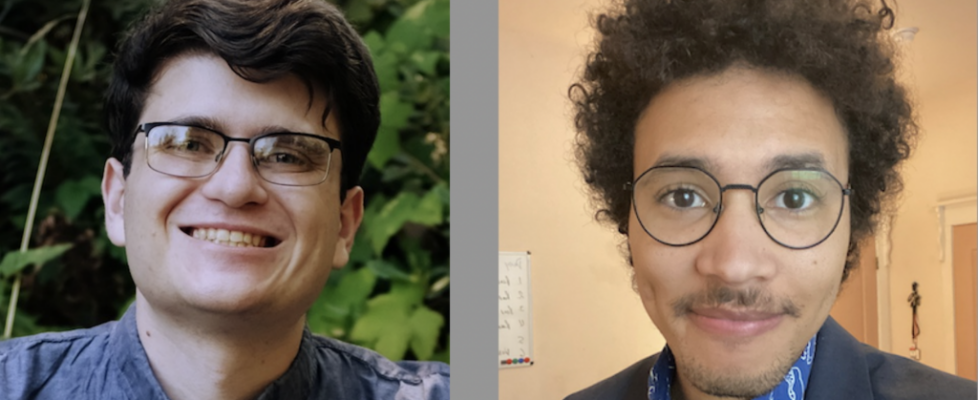Kilonova Metals & Cat Ecology – Apr 29
Wonderfest Science Envoys are early-career researchers with enhanced communication skills and aspirations. Following short talks on provocative modern science topics, these two Science Envoys will answer questions with insight and enthusiasm:
• UC Berkeley astrophysicist Daniel Brethauer on Astronomically Rocking Out to Heavy Metals — The gold in jewelry, the uranium in a nuclear power plant, the caesium in atomic clocks: what do these all have in common? It turns out they were likely forged in the fires of a cosmic explosion known as a kilonova. These extremely energetic events reveal the origins of the periodic table’s heaviest elements.
• UC Berkeley ecologist Tyus Williams on Unraveling the Ecology of Domestic Cats — What if one of our greatest companions is potentially one of our greatest threats? When free to roam, domestic cats can severely disrupt wildlife communities. However, understanding cats’ behavior and how they’re influenced by their surroundings can allow us to develop better conservation strategies.
This interactive science presentation, free and unticketed, is produced by Wonderfest in partnership with Marin Science Seminar.
Marin Science Seminar [https://marinscienceseminar.com]
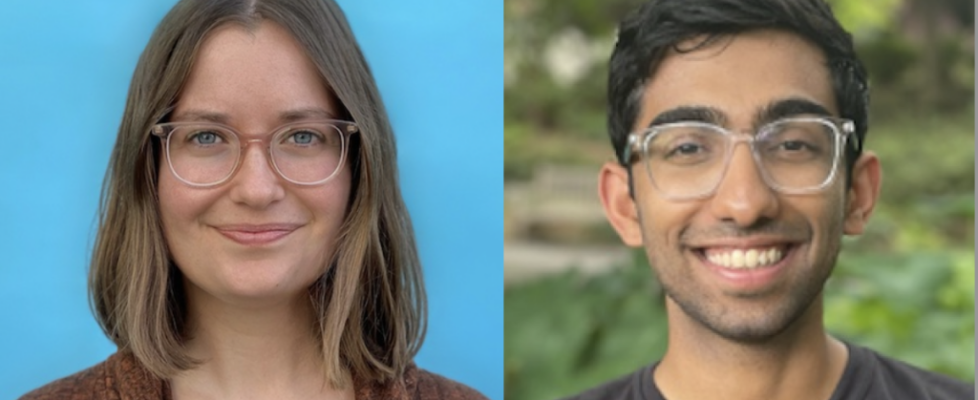
Eye Movements & Tiny Galaxies – Apr 15
Wonderfest Science Envoys are early-career researchers with enhanced communication skills and aspirations. Following short talks on provocative modern science topics, these two Science Envoys will answer questions with insight and enthusiasm:
• UC Berkeley neuroscientist Stephanie Reeves on The Horizontal Saccade Bias — Humans make eye movements to explore the visual environment. One type of involuntary eye movement, termed a saccade, occurs 2-3 times per second and is one of the fastest movements that the human body can make. New research challenges previous assumptions about how and why saccades arise.
• Stanford astrophysicist Viraj Manwadkar on Tiny Galaxies and Big Cosmic Mysteries — The very smallest galaxies shed light on fundamental questions in physics and astronomy: They play an intriguing role in the formation of cosmic ecosystems, and they even inform our attempt to understand dark matter, the utterly mysterious stuff that constitutes 80% of the material universe.
This interactive science presentation, free and unticketed, is produced by Wonderfest in partnership with Marin Science Seminar.
Marin Science Seminar [https://marinscienceseminar.com]
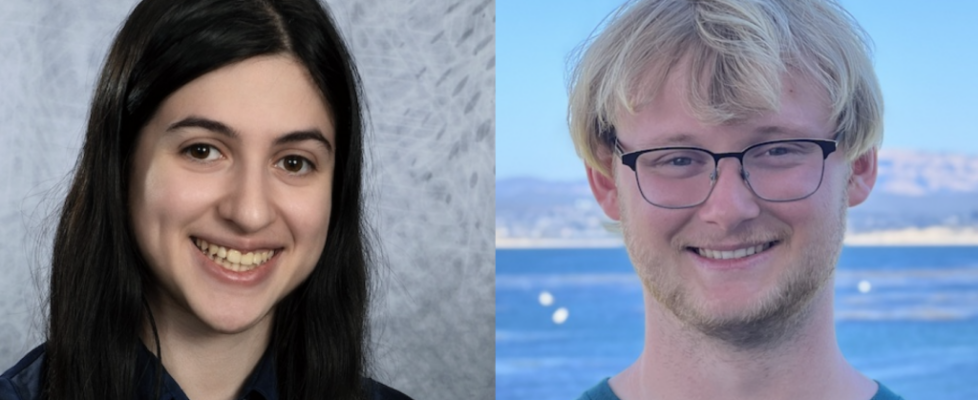
Black Holes; Kelp Forests – Feb 24
Wonderfest Science Envoys are early-career researchers with special communication skills and aspirations. Following short talks on provocative modern science topics, these two Science Envoys will answer questions with insight and enthusiasm:
• UC Berkeley astrophysicist Natasha Abrams on Black Holes: Discovering the Invisible — Black holes are among the most extreme objects in the universe. They push the boundaries of our knowledge, holding many unsolved mysteries. This talk will explore black holes from “small” to enormous, including how to detect these invisible marvels. In the process, we will probe the very frontiers of astrophysics.
• Stanford marine biologist Will Johnson on The Structure of Kelp Forests — Kelp forests constitute one of the most diverse ecosystems on Earth, and they’re hidden right beneath the waves of our coastline. To research how these ecosystems function, we need to study what lives there. Come learn how scientific diving and modern genetics are helping us unravel the complex structure of kelp forests.
This interactive science presentation, free and unticketed, is produced by Wonderfest in partnership with Marin Science Seminar.
Marin Science Seminar [https://marinscienceseminar.com]
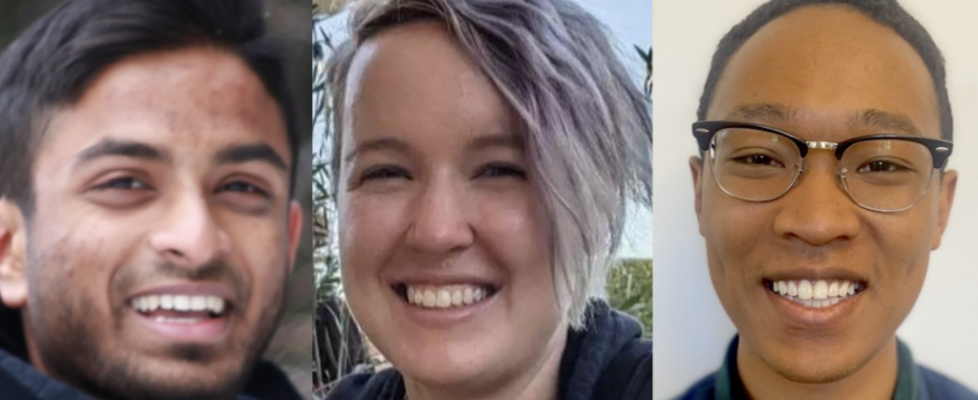
Scavengers+DarkMatter+Biomolecules – Jul 16
Wonderfest Science Envoys are early-career researchers with special communication skills and aspirations. Following short talks on provocative modern science topics, these three Science Envoys will answer questions with insight and enthusiasm:
• Stanford ecologist Chinmay Sonawane on How Scavenging Animals Protect Human Health — Wildlife is rapidly disappearing globally. But why should we care? The loss of scavengers (consumers of already-dead animals) provides an intriguing example of how biodiversity loss has had, and will continue to have, profound consequences for human health.
• UC Berkeley physicist Bethany Suter on Direct Detection of Dark Matter — Ubiquitous, yet deeply mysterious, dark matter constitutes 85%(!) of the material universe. What do we know — and not know — of elusive dark matter particles? Novel laboratory materials may allow us to detect dark matter directly, shining light into the pervasive cosmic shadows.
• Stanford biophysicist Sean Waterton on Making Biomolecules from Electricity — Solar panels produce ever-more clean electricity. At the same time, human activity produces copious amounts of CO2. Modern research in synthetic biology allows us to use electricty and CO2 to create valuable molecules like fats and proteins — and, hopefully, more specialized molecules like medications.
This interactive science presentation, free and unticketed, is produced by Wonderfest in partnership with Marin Science Seminar.
Marin Science Seminar [https://marinscienceseminar.com]
What value does this free science experience have for you and, indirectly, for society? Accordingly, please consider making a donation to nonprofit Wonderfest via the Eventbrite box, below.
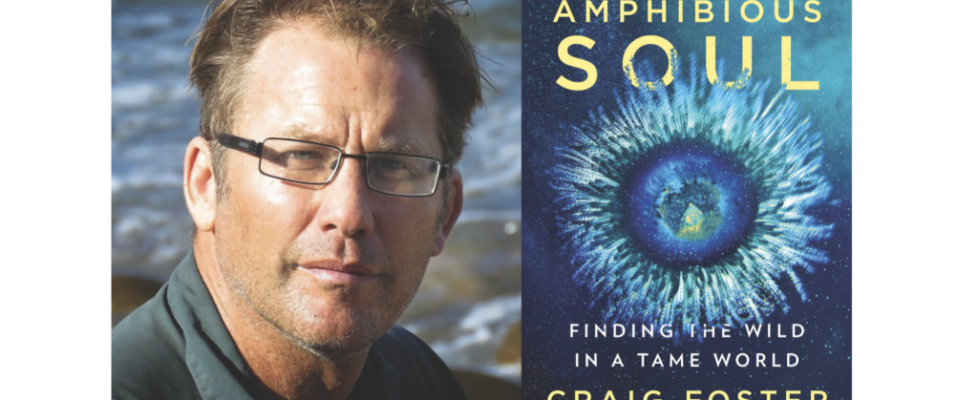
Finding the Wild – May 23
Naturalist Craig Foster has explored and studied some of Earth’s wildest environments. He has also experienced the demands of professional life in our big cities — experiences that might tend to deaden a capacity to appreciate natural beauty. Foster’s latest book, Amphibious Soul: Finding the Wild in a Tame World, vividly addresses the challenge of staying open to the wonders of nature. Of the book, Jane Goodall wrote, “[It] will transform how we think about being human … [and] inspire hope.” In this Commonwealth Club conversation, Foster will help us understand how to attend to earthly beauty and deepen our love for all living things.
Craig Foster is one of Earth’s leading nature filmmakers. Foster’s My Octopus Teacher won the 2021 Academy Award for Best Documentary. We can participate in this Commonwealth+Wonderfest event either in person or online.

Human Hibernation? – Jan 9
Sci-Fi movies often depict hibernation as the secret to long-duration human spaceflight. (Note: Even with ideal starship acceleration and deceleration — AND with the benefit of relativistic effects — the nearest exoplanet is 3.6 years away!) Of course, the boundary between science fiction and science fantasy is hazy. Advances in anesthesia may facilitate hibernation. Physiologically, however, general anesthesia is detrimental in the short term, and worse in the long term. Will long-spaceflight medical advances ever be able to deal with this sobering hibernation fact: roughly half of naturally-hibernating animals never revive!
Our speaker is Dr. Art Wallace, Professor and Vice-Chair of Anesthesiology and Perioperative Care at UC San Francisco. He is also Chief of Anesthesia at San Francisco's Veterans Affairs Medical Center.
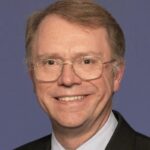
Dr. Art Wallace, MD, PhD
This event is FREE and unticketed ... and valuable. But what value does it have for YOU? Accordingly, please consider a donation to nonprofit Wonderfest via the Eventbrite window, below.
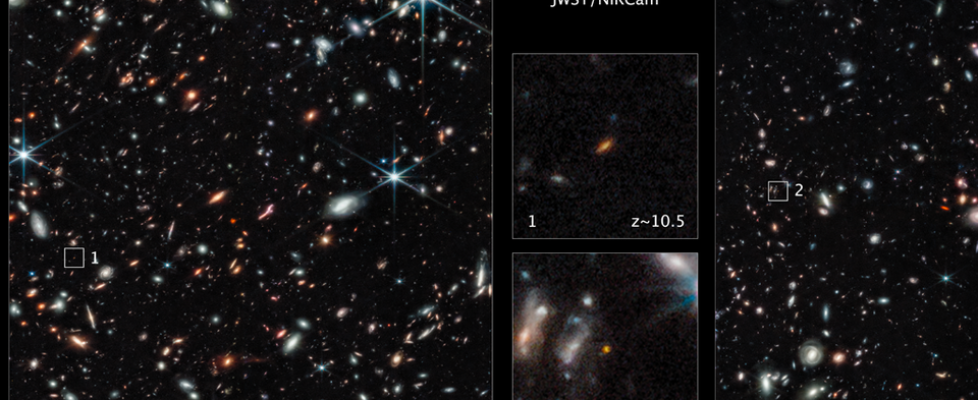
Fast & Faraway – Nov 28
In astronomy, the redder a galaxy appears, the faster it is fleeing, and the older a tale its light can tell. Such “redshifts” in the spectra of galaxies (symbolized with the letter “z”) allow compelling cosmic insights. The recently-launched James Webb Space Telescope (JWST) has allowed astronomers to study the properties of high-z galaxies in existence only 250 million years after the Big Bang, when the universe was only 2% of its current age! How are these objects detected in such very “deep” space, and what are the early science results from this JWST research?
Our speaker is Dr. Thomas Targett, Associate Professor of Physics & Astronomy at the Sonoma campus of California State University. Dr. Targett’s Wonderfest history includes an eye-opening talk entitled Popular Myths of Astronomy, presented as part of the Mt. Tam Astronomy Program.
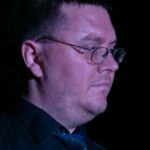
Dr. Thomas Targett
This event is FREE and unticketed ... and valuable. But what value does it have for YOU? Accordingly, please consider a donation to nonprofit Wonderfest via the Eventbrite window, below.
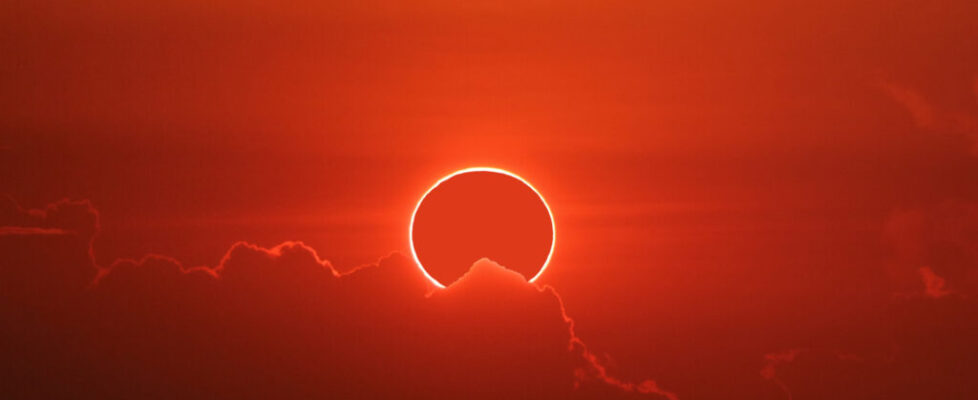
Annular Solar Eclipse – Oct. 14, 2023
A partial solar eclipse can be fun to watch, though it’s not even *close* to being as spectacular as a total solar eclipse — and I hope all of you travel to the path of totality to see the total solar eclipse on April 8, 2024, in Mexico or the USA. (More about that later…)
We are fortunate to have a chance to see a partial solar eclipse from all of North America and most of South America on Saturday, October 14, 2023. Indeed, in the USA, from a relatively narrow path, an “annular eclipse” will be visible. This occurs when the the Moon is farther from Earth than average in its elliptical orbit, so it looks too small to fully cover the Sun, which thus appears as an annulus (“ring of fire”) at mid-eclipse. No corona will be visible, unlike the case in a total solar eclipse, so it’s not as spectacular, but still fun to view. (Some articles in the media are making a big deal out of the Oct. 14 event, claiming it’s a total eclipse or as good as a total eclipse — it’s *not*!) A photo is attached here.
The path of annularity is shown at https://www.timeanddate.com/eclipse/map/2023-october-14 , and you can type various cities in the Search box to see whether they are within it (broadly speaking: parts of Texas, New Mexico, Utah, Nevada, and Oregon; small sections of Colorado, Arizona, and California). Other places in the USA will experience a partial eclipse shaped more or less like a “C” — but not the full “ring of fire.”
I encourage you to view the partial eclipse, even if you don’t go to the path of annularity. For example, seen from Berkeley, CA, about 77% of the Sun will be covered. The beginning, middle, and end of the eclipse will be at 8:05 am, 9:19 am, and 10:42 am PDT (respectively) — I got this information by clicking on Berkeley on the map at
https://www.timeanddate.com/eclipse/map/2023-october-14 .
When looking at the Sun, be sure to use a “CE certified” solar filter that blocks 99.999% of the visible light and 100% of the ultraviolet and infrared light. These can be purchased online for a small price (about $1-2 each, depending on how many you buy); for example, go to Amazon.com and type in “solar eclipse glasses CE certified.” For a more durable viewer, you could purchase a small (2″ x 4″, or 4″ x 5″) piece of Shade 14 welder’s glass from a welding supply store; cut a rectangular hole in a sheet of cardboard and tape the glass to it, to make the filter easier to hold and to shield the rest of your face from sunlight (but put on sunscreen, anyway). Also, or instead, make a “pinhole camera” (a pencil-width hole in a sheet of cardboard) and project an image of the Sun onto a shaded surface.
If you’d like to take photographs of the Sun, be sure to use a filter in front of your camera. Also, do *not* look directly at the Sun through the camera viewfinder lens unless you have a filter (though it’s okay to look directly at the LCD display of the Sun without a filter).
Feel free to share all of this information with your family and friends.
Wishing you clear skies,
Alex
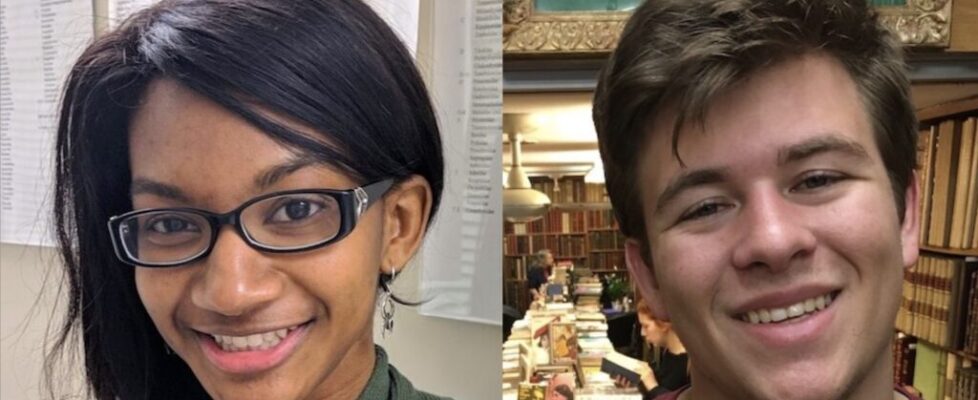
Next Scientist #2 – Nov 7
Next Scientist is a new Wonderfest series of online presentations. Every Next Scientist Zoom consists of two 30-minute presentations (including 10 minutes of Q&A), each featuring a young researcher describing next-level science:
UC Berkeley arachnologist Trinity Walls on Creepy or Captivating: A Spider Scientist’s Perspective — How have recent discoveries about spiders changed beliefs that have been passed down for generations? Can we see that the study of spiders is beneficial to society? One person’s life-long journey — from curious child to rigorous researcher — reveals spider science to be an avenue of creative self-expression that offers rich insights into nature.
UC Berkeley astrophysicist Tyler Cox on Creating the Largest-Ever Maps of the Universe — New datasets from the James Webb Space Telescope have begun to reveal some of the oldest known galaxies in the universe. But what lies beyond these extremely remote objects, and what more can we learn by going deeper? Next-generation experiments are working to map the most distant regions of the universe to help explain the origins of the first galaxies.
This free, online, science presentation is produced by Wonderfest in partnership with the Castro Valley Educational Foundation and Castro Valley Science.
What value does this experience — and these insights — have for YOU? Accordingly, please support nonprofit Wonderfest, the Bay Area Beacon of Science, by donating via the Eventbrite space, below.
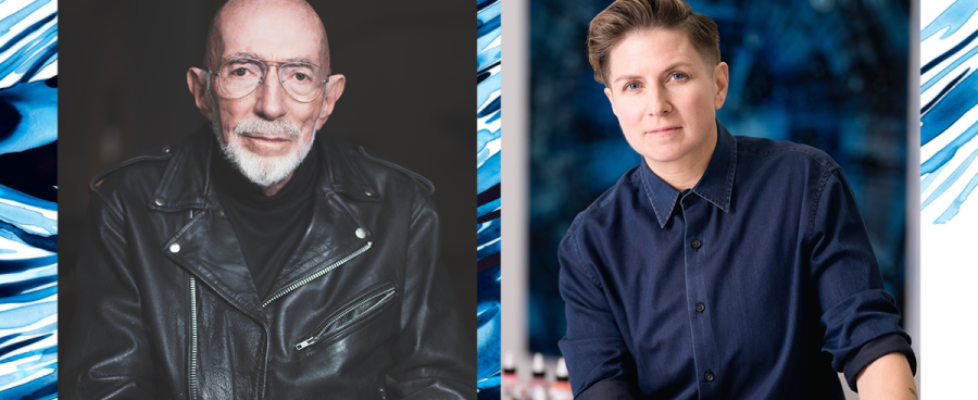
Warped Universe – Oct 30
The warping of space becomes noticeable near small massive objects — black holes, in particular. Beyond “noticeable,” that curvature becomes beautiful when rendered with the skilled artist’s hand and described with the poetic physicist’s verse. Lia Halloran and Kip Thorne team up to describe an odyssey through black holes, wormholes, time travel, and gravitational waves. In fact, that is the subtitle of their soon-to-be-published book, The Warped Side of Our Universe. Kirkus Reviews calls the book “Beautiful art in the service of cutting-edge astrophysics.”
Award-winning artist Lia Halloran is Associate Professor and Chair of the Chapman University Art Department. Nobel Prize-winning physicist Kip Thorne is Emeritus Professor of Physics at Caltech. These two authors will be in conversation with the Commonwealth Club’s George Hammond.
Visit the Commonwealth Club event webpage (link below) to purchase tickets for this in-person event. During the final steps of ticket acquisition, use code WonderfestPromo for a $10 discount.
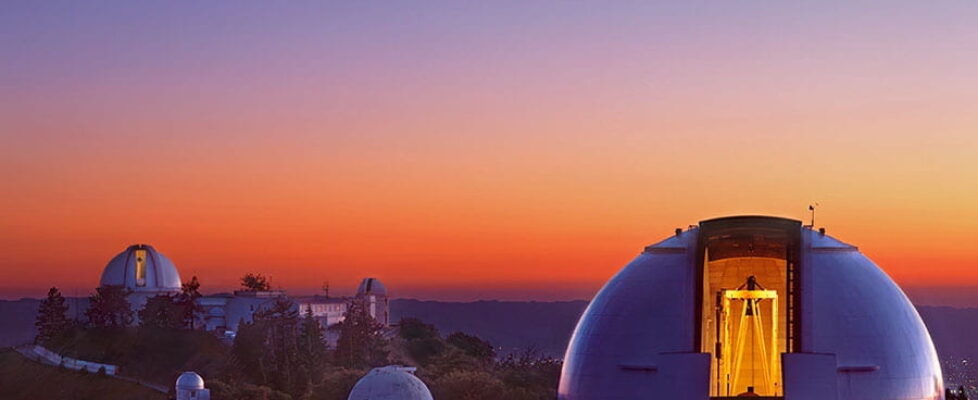
Search for ET – Oct 15
Humans have sought “signs from above” for millennia. The scientific search for extraterrestrial intelligence (SETI) began circa 1960, and, today, grows ever deeper and more technologically diverse. The scope of modern research is breathtaking. Methods include targeted searches for electromagnetic (EM) signals near known Earth-like exoplanets, continuous EM scans over the entire sky (e.g., PANOSETI at the Bay Area’s Lick Observatory, pictured), the hunt for exotic forms of communication, and the careful search for ET artifacts on/near Earth.
Our speaker, Dan Werthimer, is Chief Scientist at the Berkeley SETI Research Center. He is also co-founder of SETI@Home, and principal investigator of CASPER, the Center for Astronomy Signal Processing and Electronics Research. Since 1979, Dan has helped to design and build numerous sensitive tools for the detection of ET. In 2019, Dan earned Wonderfest’s Carl Sagan Prize for Science Popularization. And, in 2021, he received the prestigious Frank Drake Award of the SETI Institute.
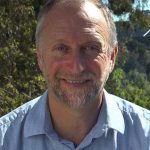
Dan Werthimer
This free event is produced by Wonderfest and by the Alameda Free Library. In the Eventbrite space below, please consider a donation to help nonprofit Wonderfest in its mission of science outreach.
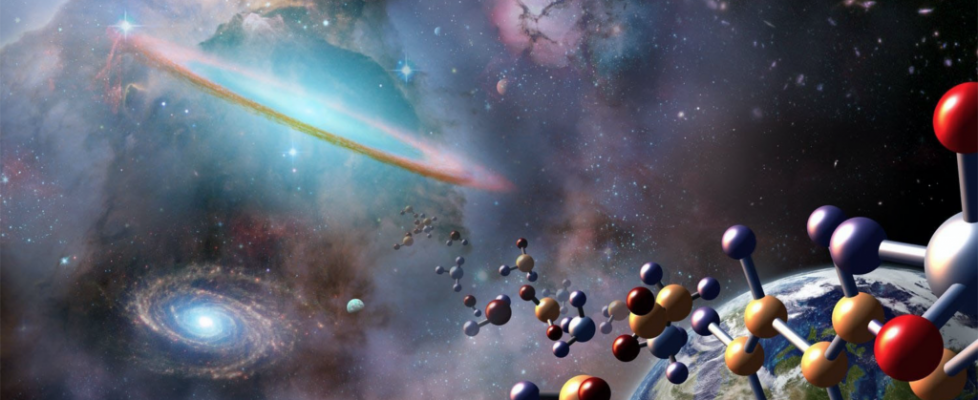
Extraterrestrial Life – Sep 5
An August-24th New York Times article about audacious astronomer Avi Loeb concludes with this: “Now, that being said, if [Dr. Loeb] finds something, it’s life-changing … It will change everything.” What was “being said” referred to professional academic complaints about Dr. Loeb’s alleged “transgressions against scientific norms and protocols.” However, no one disputes the excitement of Prof. Loeb’s investigations. Wonderfest joins the Commonwealth Club to present controversial Harvard astronomer Avi Loeb in conversation about ideas in his latest book, Interstellar: The Search for Extraterrestrial Life and Our Future in the Stars. That conversation will explore some vital — if highly speculative — long-term questions: How do we prepare for first contact with ET? And how can our species itself become interstellar?
Dr. Avi Loeb is Professor of Science and former chair of the Astronomy Department at Harvard University. During this online event, he will be in conversation with the Commonwealth Club’s George Hammond.
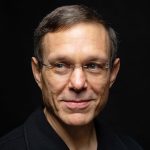
Dr. Avi Loeb
The Commonwealth Club
Please pre-register with the Commonwealth Club (via the URL below) to receive a link — via email — to this live-stream event. Use discount code WonderfestPromo for $10 off the ticket price, rendering that ticket completely FREE.
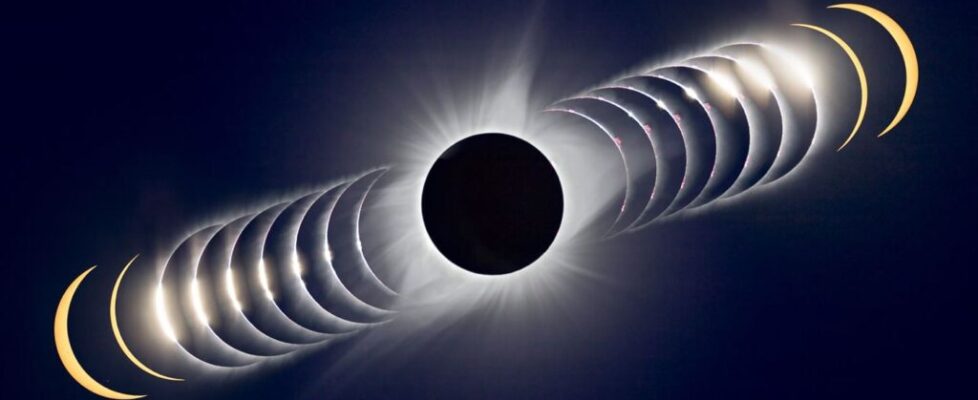
Two Solar Eclipses – Aug 28
Two eclipses of the sun are coming to North America during the academic year ahead: an annular (“ring of fire”) eclipse on October 14, 2023, and a total eclipse on April 8, 2024. Observers in two narrow paths will have the full eclipse experience each time. Everyone else (an estimated 500 million people, including all of us in the Bay Area) will see a nice partial eclipse, where the moon covers a good portion of the sun.
Astronomer extraordinaire Andrew Fraknoi will describe how eclipses come to be (and why they are total only on Earth), what scientists learn during eclipses, exactly when and where the eclipses of October and April will be best visible, and how to observe the eclipses safely.
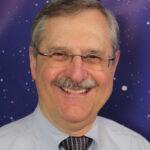
Andrew Fraknoi
Visit the Commonwealth Club event website (below) for info about the two types of tickets: in-person and online. During the final steps of ticket acquisition, use discount code WonderfestPromo for $10 off. (That price reduction renders the online ticket entirely FREE.) In-person attendees will receive a free pair of safe-viewing glasses for the partial eclipse phases.
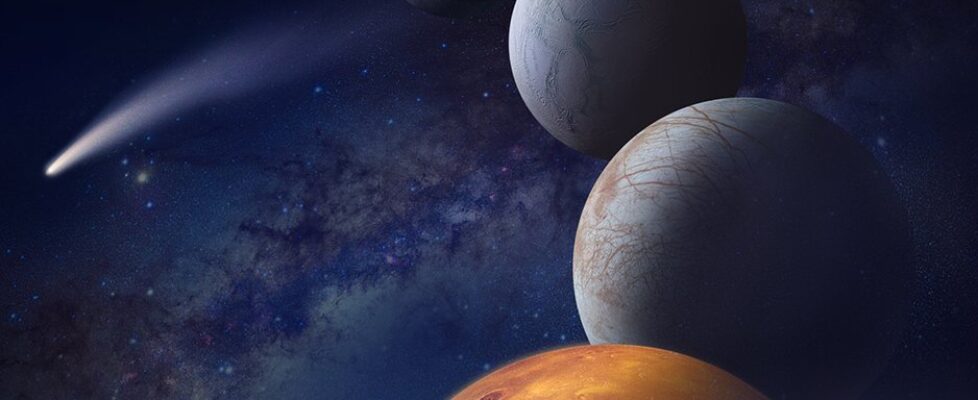
Astrobiology Memoir – July 24
How far off are the “goldilocks” worlds? These are the planets, orbiting other stars, that have just the right environmental traits to make life possible — not too hot, not too cold, etc. Will we be able to detect the chemical signals of alien life from so far away? In her new book, Life on Other Planets: A Memoir of Finding My Place in the Universe, Dr. Aomawa Shields discusses these questions alongside the personal challenges she’s encountered on the path to success in the thrilling field of astrobiology. Dr. Shields is in conversation with author and journalist Julia Flynn, and in touch with the online audience via the chat bar.
Dr. Aomawa Shields is Associate Professor of Physics & Astronomy at UC Irvine. She is also founding director of Rising Stargirls, dedicated to encouraging girls to explore the universe using theater, writing, and visual art.
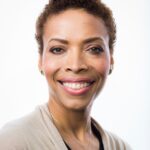
Dr. Aomawa Shields
The Commonwealth Club
Please pre-register with the Commonwealth Club (via the URL below) to receive a link — via email — to this live-stream event. Use discount code WonderfestPromo for $10 off the ticket price, rendering that ticket completely FREE.
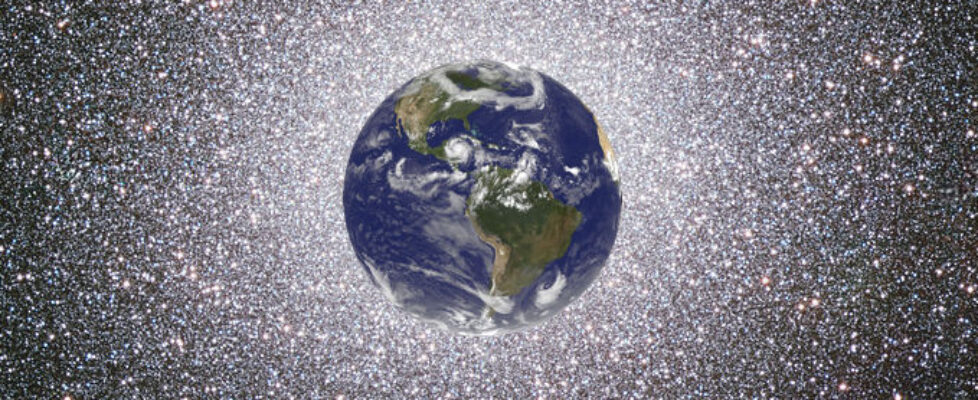
Astronomy for Earth – June 20
The past few decades of astronomical discovery have been breathtaking: thirty years of awe-inspiring images from two Space Telescopes (Hubble & Webb), thousands of planets found circling nearby stars, mind-bending and spacetime-bending gravity waves and, quite recently, a stunning image of the black hole at the center of the Milky Way. What is the value of all of these discoveries? Can learning about our place in the Universe inspire us, as Carl Sagan put it, to preserve and cherish the Pale Blue Dot?
Our speaker, Dr. Adrienne Cool, is Professor of Physics & Astronomy at San Francisco State University. She is also co-founder of Astronomers for Planet Earth, an international organization working to address climate change from a cosmic perspective.
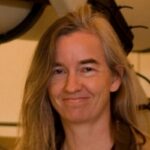
Dr. Adrienne Cool
Since Wonderfest is COVID-cautious, consider wearing a mask; the warm feeling of Wondernaut(!) camaraderie radiates through masks and across wide seat-spacing.
This event is FREE and unticketed ... and valuable. But what value does it have for you? Accordingly please consider a donation to nonprofit Wonderfest via the Eventbrite window, below.
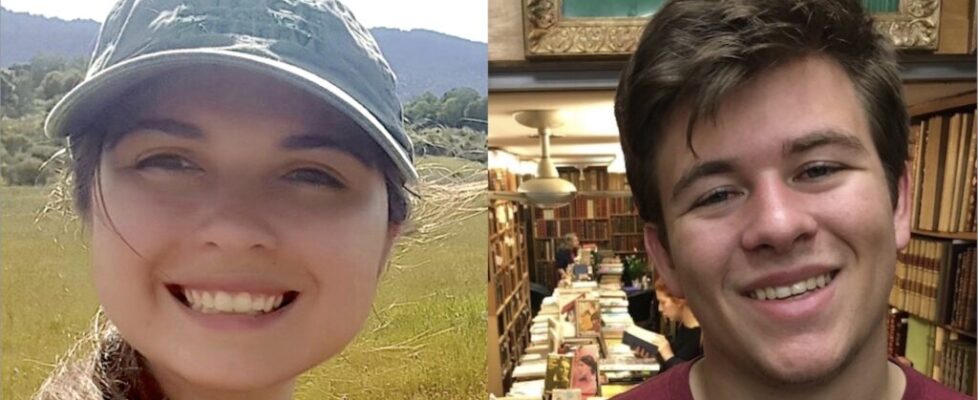
Biodiversity; Cosmic Maps – Mar 27
Wonderfest Science Envoys are early-career researchers with special communication skills and aspirations. Following short talks on provocative modern science topics, these two Science Envoys will answer questions with insight and enthusiasm:
• Stanford paleobiologist Dr. Maria Viteri on Exhuming the Dead to Save the Living — Earth is experiencing a crisis in biodiversity. Surprisingly, the fossil record offers key insights for understanding this crisis, and one scientist’s lifelong fascination with dinosaurs — leading to a career in conservation biology — is helping to combat the biodiversity challenge of the present … and of the future.
• UC Berkeley astrophysicist Tyler Cox on Creating the Largest-Ever Maps of the Universe — New datasets from the James Webb Space Telescope have begun to reveal some of the oldest known galaxies in the universe. But what lies beyond these extremely remote objects, and what more can we learn by going deeper? Next-generation experiments are working to map the most distant regions of the universe to help explain the origins of the first galaxies.
Berkeley Public Library [https://www.berkeleypubliclibrary.org]
This free, online, science presentation is produced by Wonderfest in partnership with the Berkeley Public Library.
What value do these science insights have for you? Accordingly, please consider making a donation to nonprofit Wonderfest via the Eventbrite box, below. (Note: No "sales" or "tickets" are involved; it's just a thoughtful contribution to help Wonderfest promote science understanding and the scientific outlook.)
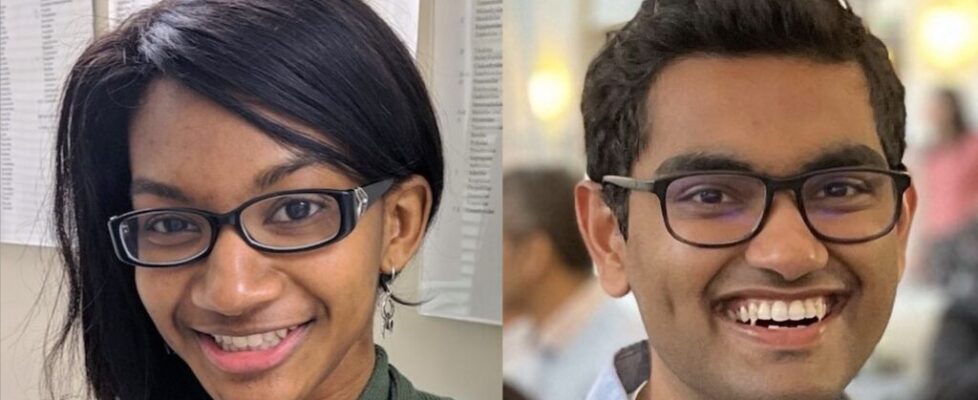
Spider Love; Dark Matter – Mar 15
Wonderfest Science Envoys are early-career researchers with special communication skills and aspirations. Following short talks on provocative modern science topics, these two Science Envoys will answer questions with insight and enthusiasm:
• UC Berkeley arachnologist Trinity Walls on Creepy or Captivating: A Spider Scientist’s Perspective — How have recent discoveries about spiders changed beliefs that have been passed down for generations? Can we see that the study of spiders is beneficial to society? One person’s life-long journey — from curious child to rigorous researcher — reveals spider science to be an avenue of creative self-expression that offers rich insights into nature.
• Stanford physicist Jyotirmai “Joe” Singh on Exploring the Dark Side of the Universe — Deeply mysterious dark matter constitutes a staggering 85% of the material universe. What is the evidence for dark matter’s ubiquitous existence, yet why has it been so difficult to detect in the laboratory? Cutting-edge theories and experiments within modern physics do give us hope that we can understand dark matter, unlocking key mysteries of the cosmos.
Berkeley Public Library [https://www.berkeleypubliclibrary.org]
This free, online, science presentation is produced by Wonderfest in partnership with the Berkeley Public Library.
What value do these science insights have for you? Accordingly, please consider making a donation to nonprofit Wonderfest via the Eventbrite box, below. (Note: No "sales" or "tickets" are involved; it's just a thoughtful contribution to help Wonderfest promote science understanding and the scientific outlook.)
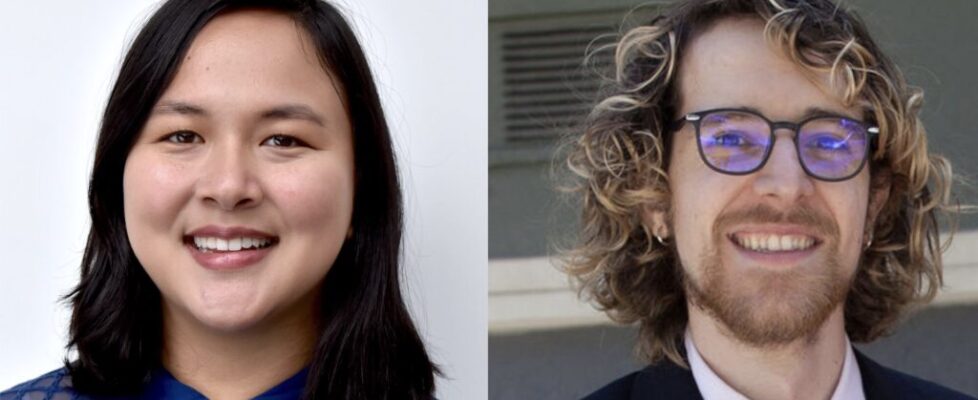
Neural Engagement; Algorithmic Manipulation – May 17
Wonderfest Science Envoys are early-career researchers with special communication skills and aspirations. Following short talks on provocative modern science topics, these two Science Envoys will answer questions with insight and enthusiasm:
• Stanford neuroeconomist Tara Srirangarajan on Neural Engagement With Nature Imagery — The power of Internet media to capture attention, inspire emotions, and motivate behavior pervades much of modern life. Nature imagery — from pets to wildlife to landscapes — engages the public toward a variety of ends. Understanding the neural mechanisms that underlie the effect of such imagery can drive prosocial action on climate change and other environmental issues.
• UC Berkeley computer scientist Micah Carroll on Manipulation via Social Media Algorithms — A new class of AI algorithm is working to maximize user engagement across social media — actually trying to change the user in order to make more money for parent Internet companies. When we browse online social content, e.g. on Instagram or TikTok, exactly how will AI play with our minds?
This event is free. But what value do these science insights have FOR YOU? Accordingly, please use the space below to contribute to nonprofit Wonderfest, and help to promote the scientific outlook broadly — as through our outstanding Science Envoy Program.
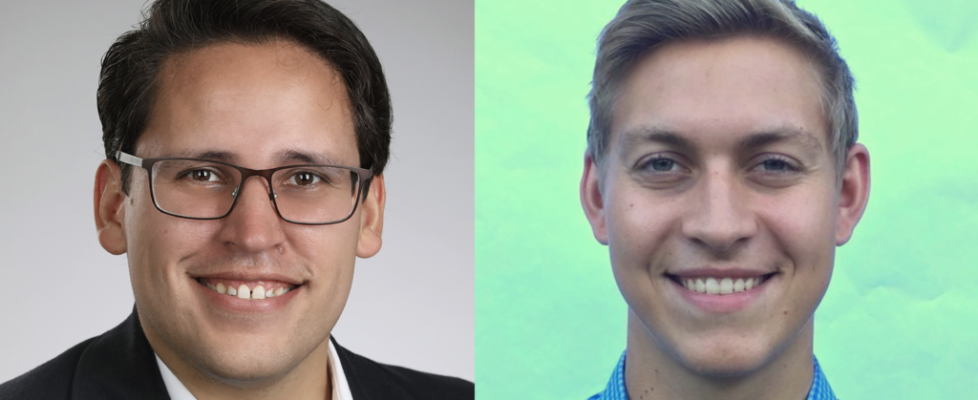
Memory; Supernovae – May 9
Wonderfest Science Envoys are early-career researchers with special communication skills and aspirations. Following short talks on provocative modern science topics, these two Science Envoys will answer questions with insight and enthusiasm:
• Stanford neuroscientist Douglas Steven Miller on Why Can’t I Remember? — Memory is a fundamental component of life. However, memory within and across individuals can vary. By studying attention, we can illuminate key components of these differences and perhaps strengthen our memory.
• UC Berkeley astrophysicist Sergiy Vasylyev on Cosmic Fireworks — Some stars go out with a bang: a cataclysmic explosion known as a supernova. Supernovae allow us to study the composition and dynamics of the Universe. Astronomers are able to use certain properties of light and atoms to peer inside the extreme environments of these cosmic fireworks from the safety of planet Earth.
This event is free. But what value do these science insights have FOR YOU? Accordingly, please use the space below to contribute to nonprofit Wonderfest, and help to promote the scientific outlook broadly — as through our outstanding Science Envoy Program.
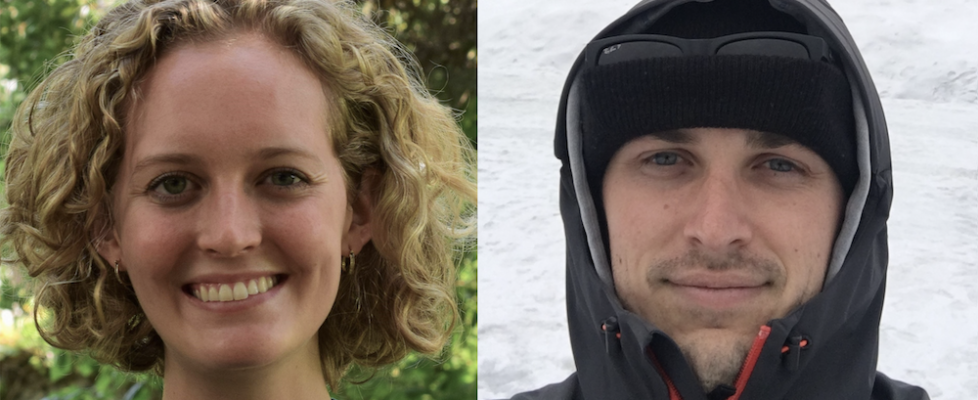
Plant Immunity; Exoplanets – Mar 30
Wonderfest Science Envoys are early-career researchers with special communication skills and aspirations. Following short talks on provocative modern science topics, these two Science Envoys will answer questions with insight and enthusiasm:
• UC Berkeley plant biologist Chandler Sutherland on It’s Not Easy Staying Green: Understanding Plant Immune Systems — Every day, plants resist an onslaught of viruses, bacteria, fungi, and herbivores. However, plants can’t make antibodies or move immune cells around with a circulatory system, as we can. Understanding plant immune systems teaches us about how human immunity evolved, and is helping us learn how to protect our agricultural crops against disease.
• Stanford astrophysicist Alex Madurowicz on Imaging Extrasolar Planets — Technical advancements in the next decade will enable telescopic observation of smaller and fainter worlds that orbit other stars, including Earth-like planets. Going further, bold concepts for the next century completely reimagine the concept of a telescope — allowing resolution of details like continents, forests, and even extraterrestrial cities.
This event is free. But what value do these science insights have FOR YOU? Accordingly, please use the space below to contribute to nonprofit Wonderfest, and help to promote the scientific outlook broadly — as through our outstanding Science Envoy Program.

